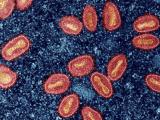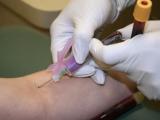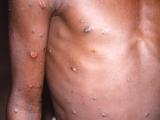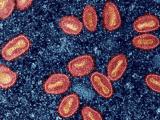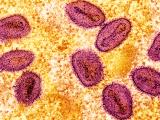Today in Morbidity and Mortality Weekly Report researchers share two studies on mpox in the US, including the usefulness of wastewater detections and the implications of a 2023 outbreak in Los Angeles County.
Wastewater tests more sensitive when mpox spread higher
In the first study, authors describe the findings from the CDC's National Wastewater Surveillance System, which began routine testing of US wastewater for mpox (formerly monkeypox) virus in October 2022, months after the global outbreak predominately among men who have sex with men began.
The study included samples which that collected from August 2022 through May 2023. People with mpox are assumed to shed the virus for up to 25 days after symptom onset, and the authors of the study wanted to determine the sensitivity and positive and negative predictive value (PPV and NPV) of wastewater mpox section.
The authors said PPV was defined as the probability that at least one person was shedding virus when a wastewater detection occurred. NPV was defined as the probability that no one was shedding virus when there were zero wastewater detections.
In a single week, from samples representing thousands to millions of persons, a wastewater mpox detection had a sensitivity of 32% for detecting one or more people shedding mpox virus, 49% for detecting five or more people shedding virus, and 77% for detecting 15 or more people shedding virus.
The PPV was 72.6% for predicting a single case per day (95% confidence interval [CI], 61.8% to 81.8%) and 61.9% (95% CI, 48.8% to 73.9%) for predicting a case weekly.
The NPV for predicting the absence of anyone shedding mpox virus in a county on a given day or week was 72.9% (95% CI , 70.5% to 75.2%) and 80.3% (95% CI, 76.2% to 84.0%), respectively
"When Monkeypox virus was detected in wastewater on a single day or week, there was most likely (but not always) at least one case present in the county," the authors wrote."Nondetection of Monkeypox virus in wastewater, in combination with no reported cases, can provide reassurance to public health officials that large numbers of cases are not present in communities where wastewater surveillance is occurring."
LA County outbreak shows importance of vaccination
The second study outlines moderate levels of mpox transmission in LA County (LAC) last spring and summer, and the importance of vaccination.
The county saw some of the country's highest levels of mpox in 2022, but it had sustained a steady decrease before May 2023, when the LAC Department of Public Health observed an uptick.
"The increasing number of cases during this period was significant, as few other health departments in the United States reported an increase in mpox cases during the same period," the authors wrote.
From May 4 to August 17, 2023, researchers identified 56 mpox patients, with only 29% fully vaccinated against the virus. One patient was hospitalized, and no deaths were reported. Two of the cases involved mild reinfections.
This outbreak underscores the ongoing need for accessible mpox vaccination for persons at risk for severe disease.
All 56 cases occurred in men, and 45 (80%) of mpox patients identified as gay or bisexual. Among the 56 patients, 32 (57%) were unvaccinated, 8 (14%) were partially vaccinated, and 16 (29%) were fully vaccinated.
The authors of the study concluded, "Mpox is spreading at low levels within LAC, which could be indicative of endemic transmission, especially as vaccination rates decline."
They add, "This outbreak underscores the ongoing need for accessible mpox vaccination for persons at risk for severe disease, particularly persons with uncontrolled or advanced HIV disease, and groups with low vaccination coverage, including young, Black, and Hispanic persons, and persons living with HIV."
